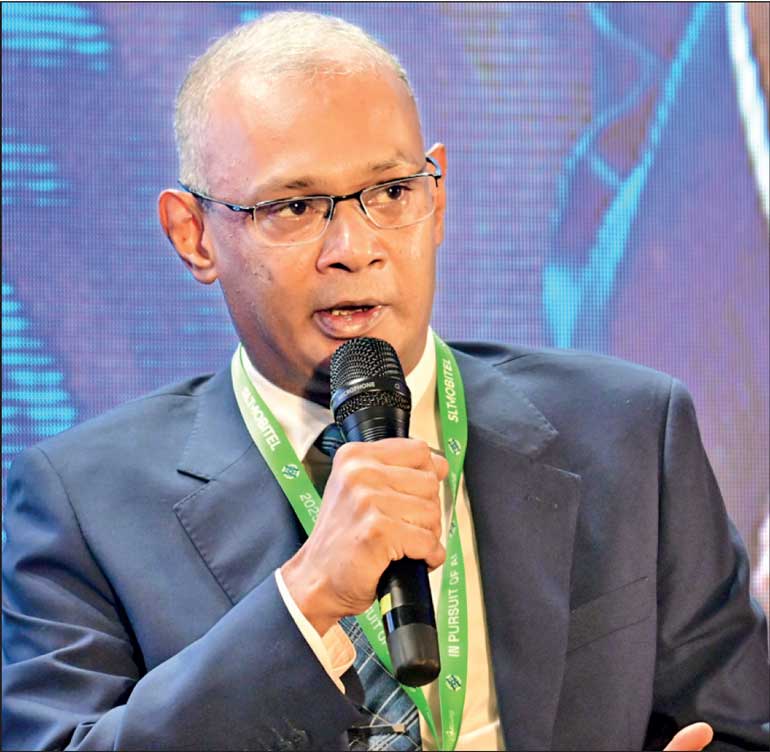Saturday Feb 14, 2026
Saturday Feb 14, 2026
Wednesday, 1 October 2025 00:06 - - {{hitsCtrl.values.hits}}

Chief Analytics and AI Officer Dr. Romesh Ranawana
By Charumini de Silva
Dialog Axiata Group Chief Analytics and AI Officer Dr. Romesh Ranawana on Monday said Sri Lanka’s artificial intelligence (AI) adoption remains far behind global peers, largely due to the lack of localisation in language and cultural context.
Sharing insights during a panel at the two-day conference spearheaded by the Digital Economy Ministry in collaboration with SLT-Mobitel, he highlighted the stark localisation gap with other countries. Dr. Ranawana noted that while 50–60% of people in countries such as the US, Canada and Singapore use generative AI tools like ChatGPT at least two or three times a week, Sri Lanka’s usage is low at just 5%. “The contrast with India is striking. Adoption there is already at 50–60%, driven by strong localisation efforts,” he observed.
According to Dr. Ranawana, localisation in AI is twofold. The first is linguistic localisation, which involves building systems that can understand and process Sinhala and Tamil through voice recognition (ASR), text-to-speech (TTS) and optical character recognition (OCR).
“The Digital Economy Ministry has already begun work on creating Sinhala datasets and models, with an emphasis on making them publicly available to researchers,” he revealed.
The second is contextual localisation. “Most AI systems are trained on Western data. They don’t always reflect our cultural context, values or communication styles. Without that, responses can often feel irrelevant or inaccurate,” he explained.
However, Dr. Ranawana cautioned against delaying adoption till localisation is complete. Current tools, he argued, are already good enough for practical applications in areas such as education. “For example, tools like Google Translate are sufficient to build simple classroom systems today. We should deploy them immediately,” he said, urging policymakers and industry players to leverage what is already available.
He said deeper localisation must be pursued as a multi-year national program. “The goal should be to build comprehensive national datasets that capture our dialects, accents, and cultural contexts, while ensuring data quality and noise reduction. This will not be a one-off project—it requires sustained investment over at least five to six years,” he said.
Done right, localisation could transform Sri Lanka’s digital economy. It would strengthen government services, empower startups to build locally relevant AI applications, and position the country as a competitive player in the global AI ecosystem.
“We must view localisation not just as a technical task, but as a nation-building effort,” Dr. Ranawana emphasised, calling for collaboration between Government, academia, and industry.
Pic by Lasantha Kumara